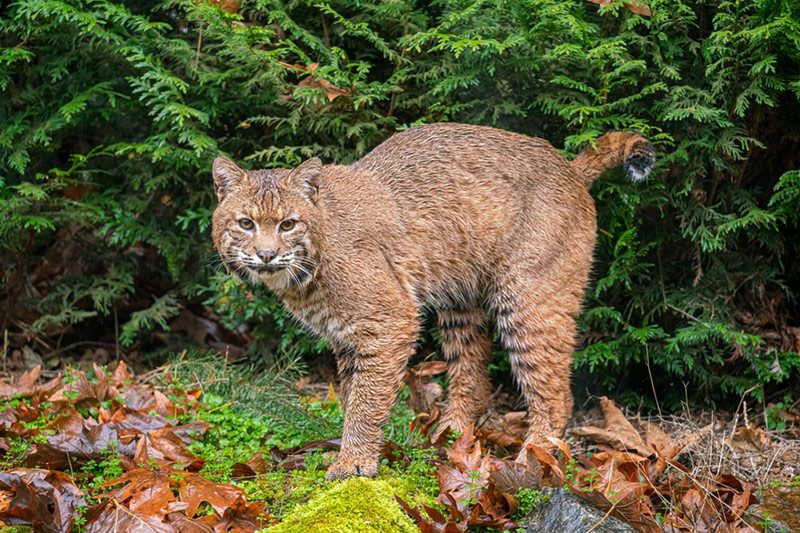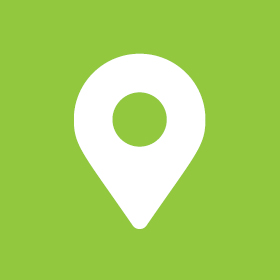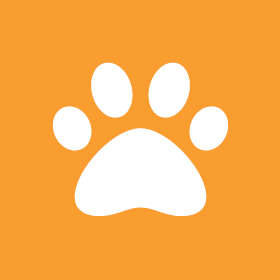
URBAN CARNIVORES
SEATTLE URBAN CARNIVORE PROJECT
Studying how carnivores coexist with people across urban and suburban areas in the Seattle region
URBAN SPACES & CARNIVORES
Urban spaces and the suburbs that sprawl around them are growing worldwide, pushing some carnivore species into more remote regions, while forcing others to adapt to higher human densities. Increasing contact between humans and carnivores potentially leads to more human-carnivore interactions and increased concerns about risks to humans, whether real or perceived. Continued survival of urban carnivore populations, as well as a sense of security for the public, requires increased understanding of and coexistence with these species.
Woodland Park Zoo and Seattle University have launched a new project to explore how mammalian carnivores, such as coyotes, foxes, raccoons, bobcats, and even cougars and bears live and interact with people across urban and suburban areas in the Seattle region.
Urban Dwellers
Seattleites are learning about the wildlife living in their midst through a community-based program created by Woodland Park Zoo and Seattle University.
ABOUT THE PROJECT
The Seattle Urban Carnivore Project focuses on the following species: black bear, bobcat, cougar/ mountain lion, coyote, opossum, raccoon, river otter and red fox.
These are terrestrial (not marine) mammals in the taxonomic order Carnivora (*except for opossums, which are marsupials but fill a similar niche in our urban environments). Some of them have a carnivorous diet (eating other animals). Many of them, however, have an omnivorous diet, eating plants as well as animals. We’re focusing on species that tend to occur within or adjacent to developed regions and are generally easy for the public to identify. The project aims to explore how urban carnivores live and interact with people across greater Seattle. While we appreciate the importance of other carnivorous animals such as birds of prey, the primary focus of this project is to further understand and support coexistence with the eight focal species listed above.
Engage the Local Community
Seattle-area residents, university students, and Woodland Park Zoo volunteers have learned how to deploy and check remote cameras (also called “camera traps”) in their neighborhoods. This will enhance participants’ understanding of which animals occur around them in the city, foster valuable science skills, and contribute to data collection.
Strategies for Coexistence
We are using findings from this project to support communities in facilitating solutions to achieve positive coexistence with carnivores. People living in the Seattle area can contribute to advancing our scientific knowledge about urban carnivores, as well as build the skills and knowledge necessary to address real-world ecological problems.
Collaborate with Other Projects
Chicago’s Lincoln Park Zoo is coordinating the Urban Wildlife Information Network, a partnership of researchers across the country who use the wildlife-monitoring protocols created in Chicago to understand the ecology and behavior of urban wildlife species. By pooling data across multiple cities, the network is seeking to understand why animals in different cities behave the way they do, and what patterns hold true around the world.
Increase Our Understanding
The project will focus on answering these key questions:
- Do some species act as deterrents to other species? For example, do healthy coyote populations help to limit the number of rats in our suburban landscapes?
- Which neighborhood characteristics (e.g., structures, human density, trails) attract certain species to certain areas?
- How does human behavior, such as trail use and how we dispose of food waste, affect where negative human-carnivore interactions occur…and don’t occur?
- How can we better design parks, trails, and habitat connectors to enhance wildlife habitat and promote positive carnivore-human coexistence?
- Do carnivores alter their behavior in cities in ways that make them more or less likely to interact with people?
Research Methods & Findings
Camera Traps
The project uses high tech, noninvasive methods such as remote cameras—also called “camera traps”— for addressing these questions. Camera traps permit researchers to learn about wildlife without capturing or otherwise disturbing study species. Each month anywhere from 25 to 45 cameras are deployed across the greater Seattle area, located within green spaces along a north transect, a south transect and several off-transect locations. The project partners with cities and organizations – such as Issaquah Parks, SHADOW Lake Nature Preserve, Delridge Neighborhood Development Association, and Bainbridge Island Land Trust – to monitor wildlife in important places across the region. The project captures hundreds of thousands of photographs each year. The camera trap data, together with observations reported via Carnivore Spotter are analyzed to explore urban carnivore distribution, habitat use and connectivity, population dynamics, and how these species live and interact with people across the region.
Join the interest list for participating in the next season!
Genetic Analysis
We are collaborating with researchers from the University of Washington to conduct a Seattle coyote diet study. Dietary information obtained from scat (coyote poop!) through cutting-edge genetic analyses, will help us understand how coyotes use resources across the urban ecosystem. The camera trap data will be used to understand prey availability and abundance to see if coyote diet mirrors the levels of availability of different food items.
Research Results
The project has received great media attention and is producing some interesting results. See a list of articles, media, presentations and publications. Click below for our Carnivore Spotter Annual Reports prepared by Doris Duke Conservation Scholars from the University of Washington and Advanced Inquiry Program graduate interns.
Seattle Urban Carnivore Project – Progress Report 2024
Carnivore Spotter Report 2019-2020
Carnivore Spotter Report 2020-2021
Carnivore Spotter Summary 2019-2024

Community Science
Teams of youth and adult volunteers maintain many of the project’s remote camera stations. By managing these camera stations, volunteers actively participate in wildlife research in the zoo’s backyard and increase their understanding and awareness of research methods, local carnivore ecology, and coexistence.
The project includes a web-based carnivore reporting site – Carnivore Spotter – which allows residents of greater Seattle to report sightings of carnivore species such as coyotes, bobcats and cougars. Carnivore Spotter launched in August 2019 and Washington state residents logged more than 6,500 observations of local carnivores in the first two years!
WHAT YOU CAN DO
You can Report and Share Your Carnivore Sightings
Visit Carnivore Spotter now to report or explore local carnivore sightings throughout the greater Seattle area!
Volunteer
Participating as a Seattle Urban Carnivore Project Camera Trap Volunteer is an exciting opportunity to get hands-on experience with urban carnivore research while increasing your understanding of urban carnivores and how to foster human-wildlife coexistence.
Join the interest list for participating next season! We’ll alert those on our interest list when registration for the new season opens, typically in February or March.
Coexist
Our Urban Carnivores Need Your Support and Appreciation!
Make an effort to coexist with carnivores and help your neighbors to do so as well. Manage your garbage, recycling and compost to ensure wildlife can’t access them – if animals become too acclimated to human food sources, it can lead to them becoming a nuisance. For your safety and theirs, maintain a healthy distance between you and wildlife – if you encounter animals such as raccoons or coyotes in your neighborhood, make noise by yelling or slapping your hand on your thigh to deter wildlife from coming too close.


